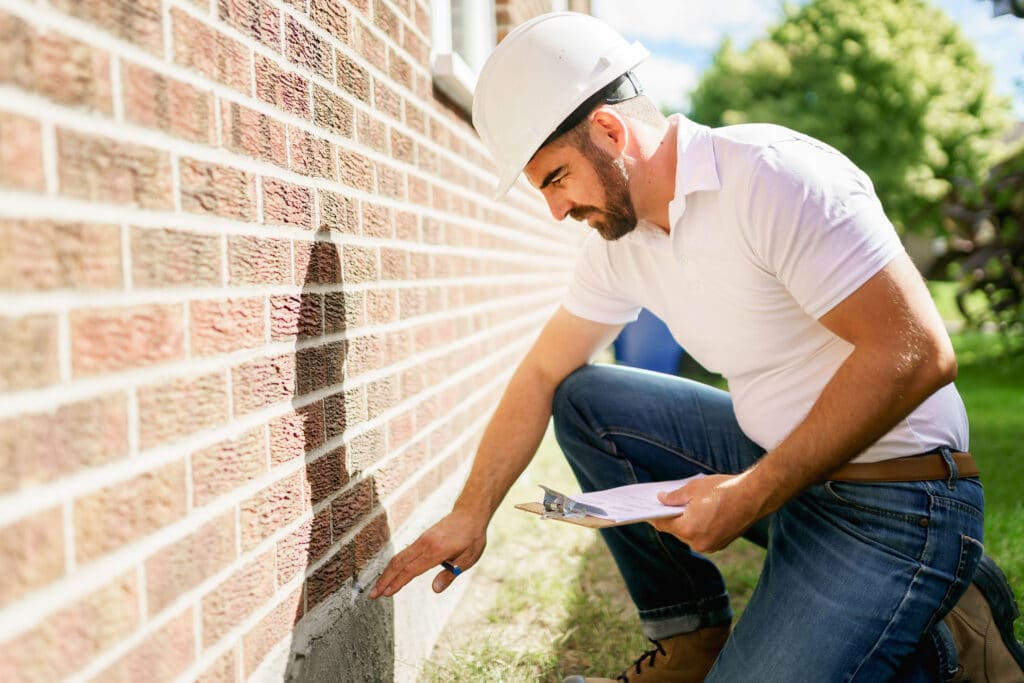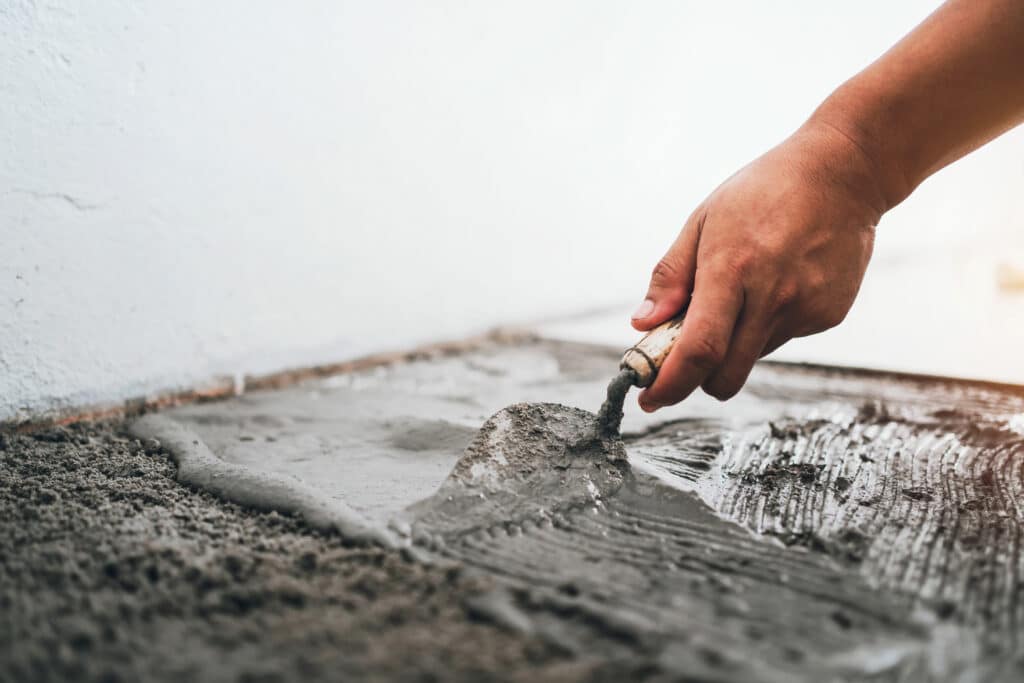Common Causes of Foundation Problems in Winston-Salem
A home in Winston-Salem might experience foundation issues for multiple reasons. Some are specific to the local environment, while others are common nationwide. They include:
- Standing water: Water accumulation around your home can harm your foundation's integrity, especially when it collects in areas your drainage system doesn't protect.
- Aging plumbing: The average Winston-Salem home construction year is 1980. If you live in an older home, it's likely to have cast-iron plumbing. When the pipes start eroding, leakage could reach your foundation and even pool beneath it.
- Soil composition: Soil with large sand or clay concentrations is highly expansive. In the heavy rainfall Winston-Salem experiences, the soil absorbs moisture like a sponge, then releases it in dry seasons. The constant expansion and contraction stresses nearby foundations, even if the foundations stay dry.
- Tree Roots: Tree roots can enter a home's foundation through crevices, and may create stress that results in your foundation breaking, pipes being damaged, and overall structural weakening.
How to Choose the Best Foundation Repair Company
To pick a foundation repair business, you should think about what's most important to you. Use this list of factors to help you go through the process.
Licensing and Experience
According to the North Carolina Licensing Board for General Contractors, foundation repair and concrete companies in the state must have either a Building Contractor license, a Residential Contractor license, or both. Talk to team members to gain additional insight into a company's experience. You should ask about local permit ordinances, building codes and inspection processes.
Contractor websites are excellent places to do your research. Typically, a company will disclose how long it's been operating. It might also upload articles to assist prospective customers.
Customer Reviews
When you're researching a company's standing, go to its Better Business Bureau (BBB) profile. There, you can find its rating and a list of customer reviews, both complaints and positive experiences. Remember that complaints don't necessarily mean a contractor is unqualified. BBB comments also show how companies address complaints. A responsive team that aims to achieve excellent outcomes is a good one. Don't work with a business if you don't see clear communication about problems.
Foundation Repair Cost in Winston-Salem
The price of foundation repair can range widely depending on the extent of the issues and what's necessary to resolve them. For minor foundation fissures and settling problems, you may pay as little as $1,800. However, if there is substantial deterioration, the average cost is about $2,700. More involved projects involving excavating, helical piers, or major mudjacking could cost upwards of $6,800. Below are the average foundation repair costs for common issues.
| Common Foundation Repair Services | Average Cost |
|---|---|
| Crack Repair | $326 |
| Leak Repair | $2,578 |
| Stabilization | $4,437 |
| Underpinning | $1,250 |
| Waterproofing | $2,844 |
Ready to Get a Quote on Your Foundation Repair Project?
Please enter a valid 5-digit zip code!
Frequently Asked Questions About Foundation Repair in Winston-Salem
How much does foundation repair cost in Winston-Salem?
When do I need to waterproof my foundation?
- Hairline cracks
- Uneven floors
- Plumbing leaks
- Mold and mildew
- Flooding
- Discoloration or odors
Will my homeowners insurance cover foundation repair?
What are some "red flags" indicating a foundation company to avoid?
To share feedback or ask a question about this article, send a note to our Reviews Team at reviewsteam@thisoldhousereviews.com.
More Foundation Resources
National Foundation Repair Ranking Methodology
Sources
U.S. Census Bureau (American Communities Survey)

















